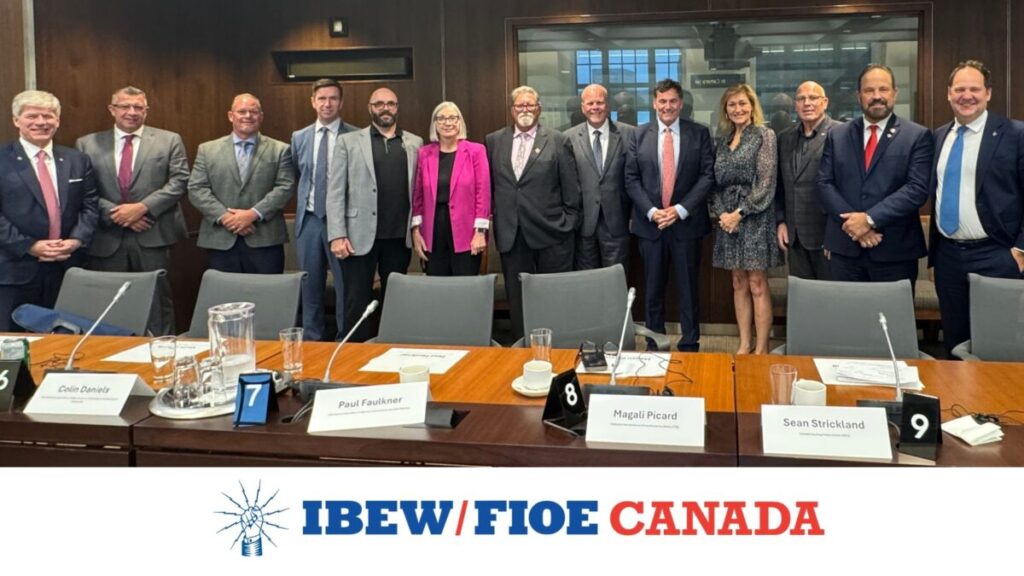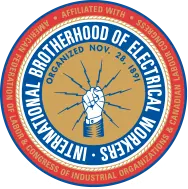
Leaders from Canada’s Building Trades Unions (CBTU), including IBEW Canada, gathered in Ottawa on September 22 and 23 for two days of important discussions with federal ministers. The roundtable meetings took place on Parliament Hill and focused on major issues that affect workers across the skilled trades.
IBEW Canada International Vice President Russ Shewchuk joined CBTU Executive Director Sean Strickland and members of the CBTU Executive Board in meetings with federal Ministers Patty Hajdu (Minister of Jobs and Families), Dominic LeBlanc (Minister of Internal Trade), Tim Hodgson (Minister of Energy and Natural Resources), and John Zerucelli (Secretary of State – Labour), as well as Dawn Farrell, CEO of the Major Projects Office. Together, they tackled key topics including Prevailing Wage, access to reliable construction labour market data, labour mobility tax deductions, a commitment to Canadian apprenticeships, and the Union Training and Innovation Program (UTIP).
On September 23, the conversation turned to the Temporary Foreign Worker Program (TFWP). The message from IBEW Canada and CBTU was clear: temporary foreign workers should not be brought onto projects unless absolutely necessary. In those rare cases, the unions stressed that labour should first be drawn from within North America, where training, qualifications, and commitment to high standards are already well known.
IVP Shewchuk highlighted the positive engagement from the government, noting that ministers listened closely, asked strong questions, and showed a clear interest in working with labour to find solutions. He also pointed out their acknowledgment of past missteps and their commitment to taking corrective action, particularly around the TFWP.
The meetings also gave Shewchuk and Strickland the opportunity to explain the differences between unions such as those under CBTU and organizations like the Christian Labour Association of Canada (CLAC). Unlike union organizations with the CBTU, CLAC operates as an association with little member involvement, allowing contractors to control decisions. This often results in lower wages, weaker benefits, and reduced pensions for workers, to help contractors undercut bids. Their track record has included delays and incomplete projects, with CBTU unions stepping in to finish the work properly, such as on phase one of the LNG project.
Shewchuk emphasized that ensuring fair wages on federally funded projects benefits all Canadians. Proper pay strengthens local economies, ensures taxes are collected fairly, and keeps money in the hands of workers and their families.
CBTU partner unions have long-standing relationships and work together to address challenges on major projects. These partnerships ensure projects are completed to the highest standard, on time, and in the best interests of Canadians.
IBEW Canada and CBTU were grateful for the opportunity to bring these issues forward. IVP Shewchuk expressed special thanks to Minister Patty Hajdu and Secretary of State for Labour John Zerucelli for their genuine commitment to these ongoing discussions. He noted his deep appreciation for their willingness to meet, their sincere interest in understanding the issues facing workers, and their commitment to do better on matters that impact IBEW members and Canadians as a whole. Looking ahead, Shewchuk also shared that he is eager to continue these conversations when he meets with stakeholders of the LNG Phase Two project on Friday, September 26, in Vancouver. As Shewchuk made clear, IBEW members are ready to deliver on nation-building projects that will strengthen Canada’s future. “We are ready to get to work.”








